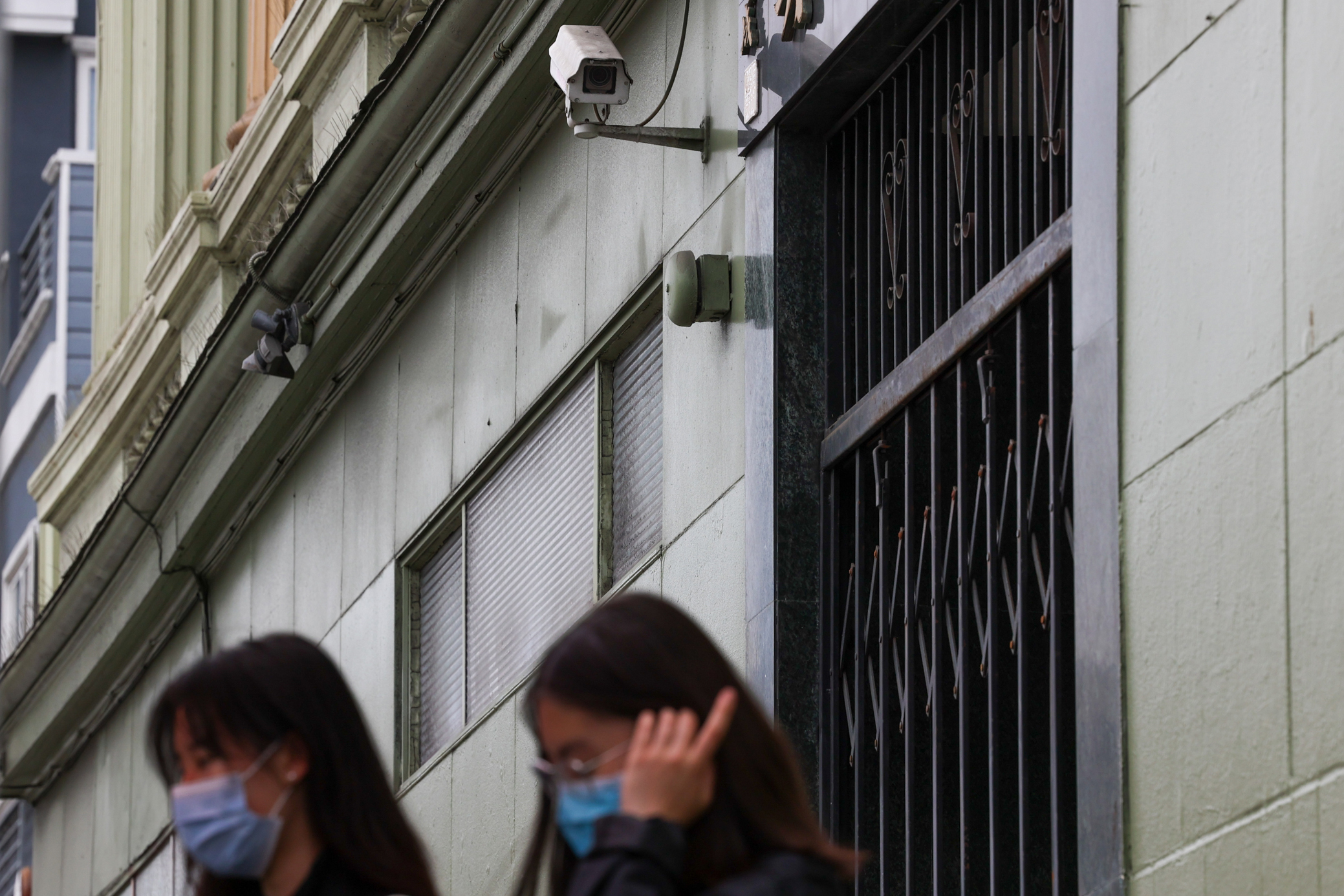San Francisco police may soon have the power to tap into surveillance cameras in real time to investigate crimes and respond to large events—but only for a one-year trial period.
That’s the upshot of a new compromise between Mayor London Breed and Supervisor Aaron Peskin over a hotly contested proposal to expand San Francisco police access to live surveillance cameras.
The deal is the latest twist in a years-long saga over the extent to which police can access camera networks run by business groups around San Francisco, commonly known as community benefit districts.
Typically, police access video from those cameras after a crime has already occured. But Breed wants officers to use those cameras in real time to monitor drug dealers and more effectively respond to large-scale incidents, including mass retail thefts in Union Square.
While Breed and her newly appointed district attorney, Brooke Jenkins, support the surveillance push, the proposal faces heavy opposition from civil liberties groups that have criticized the plans for “dramatically” lowering the standards needed for police to tap into live camera feeds.
Breed previously proposed expanding live police access to the camera networks for 24-hour periods during significant events with public safety concerns, as well as during investigations into ongoing crimes.
The newest iteration of the proposal, negotiated by Breed and Peskin, further restricts that temporary live access. Police would only be allowed to view the cameras live during significant events “for placement of police personnel due to crowd sizes or other issues creating imminent public safety hazards.”
To use the cameras during an investigation, police would need written approval from a captain or above and “credible information of criminal activity.”
Police would also have to submit quarterly reports on their surveillance usage to the Police Commission and Board of Supervisors. And the proposal includes a one-year sunset date, after which police would need to return to the Board of Supervisors to continue accessing live surveillance cameras.
A Board of Supervisors committee was due to vote on the proposal Monday, but pushed the decision until after the board’s summer recess in September.
Police can already gain live access to at least one of those camera networks, run by a group called the Union Square Alliance.
In 2020, police secured a live feed from the group to monitor the shopping district after protests over the killing of George Floyd ended in looting. The usage spawned a lawsuit from civil liberties groups alleging that the police violated a local privacy law prohibiting city agencies from acquiring new surveillance technologies without prior approval from City Hall.
But the Electronic Frontier Foundation and ACLU of Northern California lost the lawsuit in February, when a San Francisco Superior Court judge found that the usage did not violate the law because police used the cameras to live-monitor the 2019 Pride Parade—before the policy went into effect. The EFF and ACLU have since filed an appeal.
At the committee hearing Monday, Peskin said the proposal seeks to balance the protection of “civil liberties and expectation of privacy with law enforcement’s ability to have tools that it needs to make San Francisco safe.”
Police Chief Bill Scott struck a similar chord.
Scott said the changes to the policy protect the “constitutional rights to privacy that we all want to safeguard but also put guardrails in place for the responsible use of surveillance technology to address some of the crime issues in our city and protect large-scale public events.”
Supervisor Connie Chan seemed amenable to the proposal, calling the changes “very reasonable terms and conditions.”
